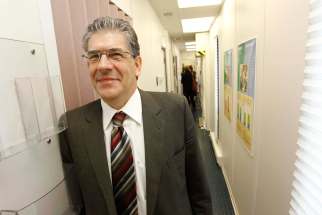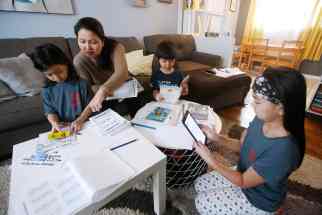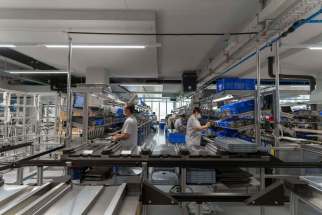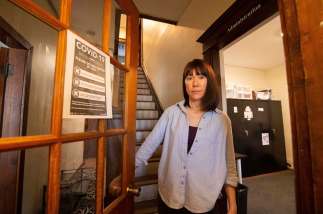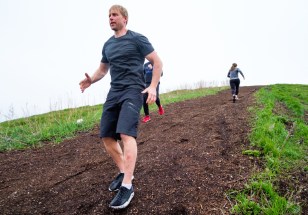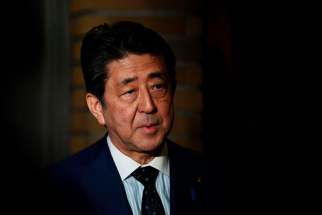The waiting is the hardest part Hockey players finding ways to stay active while in coronavirus limbo
Read this article for free:
or
Already have an account? Log in here »
To continue reading, please subscribe:
Monthly Digital Subscription
$0 for the first 4 weeks*
- Enjoy unlimited reading on winnipegfreepress.com
- Read the E-Edition, our digital replica newspaper
- Access News Break, our award-winning app
- Play interactive puzzles
*No charge for 4 weeks then price increases to the regular rate of $19.00 plus GST every four weeks. Offer available to new and qualified returning subscribers only. Cancel any time.
Monthly Digital Subscription
$4.75/week*
- Enjoy unlimited reading on winnipegfreepress.com
- Read the E-Edition, our digital replica newspaper
- Access News Break, our award-winning app
- Play interactive puzzles
*Billed as $19 plus GST every four weeks. Cancel any time.
To continue reading, please subscribe:
Add Free Press access to your Brandon Sun subscription for only an additional
$1 for the first 4 weeks*
*Your next subscription payment will increase by $1.00 and you will be charged $16.99 plus GST for four weeks. After four weeks, your payment will increase to $23.99 plus GST every four weeks.
Read unlimited articles for free today:
or
Already have an account? Log in here »
Hey there, time traveller!
This article was published 24/03/2020 (2094 days ago), so information in it may no longer be current.
Blake Wheeler is skating in the backyard with his kids. Bryan Rust is doing curl-ups up with his adorable dog. Antoine Roussel is racing his son on in-line skates through their kitchen. Timo Meier is playing a solo game of 10-touch soccer in his living room.
These are just a few of the snapshots that have emerged on social media in recent days illustrating the ways hockey players are staying active while their season is on indefinite pause. While most leagues around the globe have announced they won’t be returning, there is no such clarity yet for NHL and AHL players. They’re stuck in limbo, having gone from the thrill of a playoff chase to the great unknown in the blink of an eye.
Cutest #InHouseChallenge?
When dumbbells aren’t around, Bryan Rust goes for his pup Oliver
(��: @penguins)pic.twitter.com/t7sk23lXUG
— Hockey Night in Canada (@hockeynight) March 19, 2020
With rinks and gyms on lockdown right now due to COVID-19, keeping in shape for a potential return to action in the coming weeks or months is going to be a challenge. And in these surreal days of social distancing, working from home and self-quarantining, it can be all too easy to fall into the trap of becoming a couch potato, no matter how you earn your living.
"I think they have to make that decision sooner than later. To not know is very demotivating. It take a special individual to sort of keep that discipline and dedication right now on a daily basis," trainer Richard Burr, who works with dozens of Manitoba-based hockey players at his Winnipeg fitness facility, told the Free Press Tuesday.
"When I talk to my guys, they don’t know if it’s going to go ahead or not. I don’t know if anybody knows that or not."
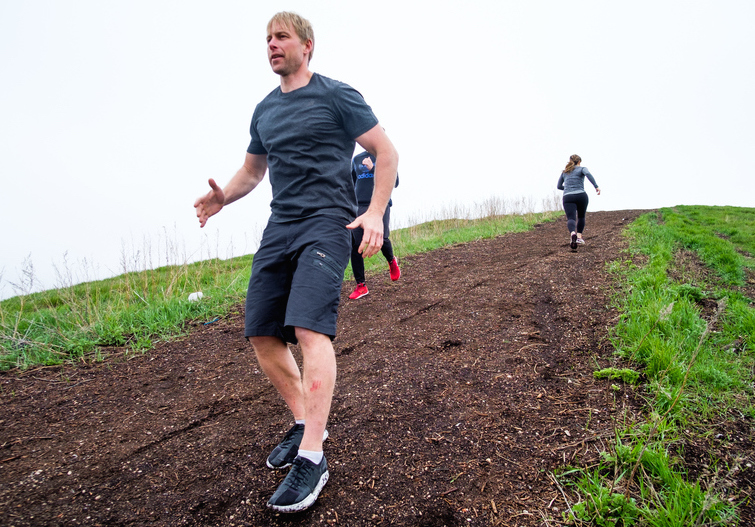
All kinds of possibilities are currently on the table, from outright cancellation to proposals that would see the leagues remain on hiatus until the summer, then have playoffs potentially run through September, and starting next season by November. But like all of us, the deep-thinkers are at the mercy of public-health officials monitoring the rapid spread of coronavirus.
Players have been allowed to return to their off-season homes, including overseas, but are in constant touch with their teams, including training staff, along with agents and the players’ association to monitor developments. League executives and individual owners and general managers are having ongoing communication, with no firm timetable set for when a possible course will be charted. It remains an extremely fluid situation.
Burr said there’s a big difference between an off-season training program and what a player would do within the grind of competition to maintain conditioning. Having no clue what stage they’re currently at — in addition to having little to no access to the usual tools they would use — puts everyone in a bit of a bind.
“You better be doing something physically every day, otherwise the body just deteriorates. The less we use our body, the quicker it deteriorates. We’re meant to move our bodies. Not beat them up and break them down, but to move them.”
– Personal trainer Richard Burr
"The guys that don’t really like the gym, but do it because they know they need to do it, those are more the athletes that have to really do a self-check. That’s probably the worst thing you can do is sit on the couch, play video games, watch your TV or movies. A little bit of that is great, but you need to have some balance," said Burr.
"You better be doing something physically every day, otherwise the body just deteriorates. The less we use our body, the quicker it deteriorates. We’re meant to move our bodies. Not beat them up and break them down, but to move them."
Some may think an athlete would be in peak physical condition this time of year, having completed the majority of the regular-season schedule. That’s actually not true for most hockey players, who are nursing all kinds of minor ailments. In that sense, a brief break could be helpful.
When you’re in self-isolation, but hockey is life.
Teddy & @Rous_ant are making the most of their family time. ���� pic.twitter.com/iMkZJYTeD6
— Vancouver #Canucks (@Canucks) March 18, 2020
"The way it is now, you show up to training camp in the best shape. As the year goes on, you kind of have a harder time maintaining your off-season gains and try to do your best to maintain that level of strength. A lot of it is injury prevention to make it through the season as healthy as possible or working on the areas that are either banged up or kind of get neglected," said Oakbank’s Matt Bailey.
The 28 year old just returned from Germany, where Deutsche Eishockey Liga playoffs were wiped out just as his team, ERC Ingolstadt, was set to begin play. He and his wife, Carine, are following orders to self-quarantine for at least two weeks because they travelled internationally.
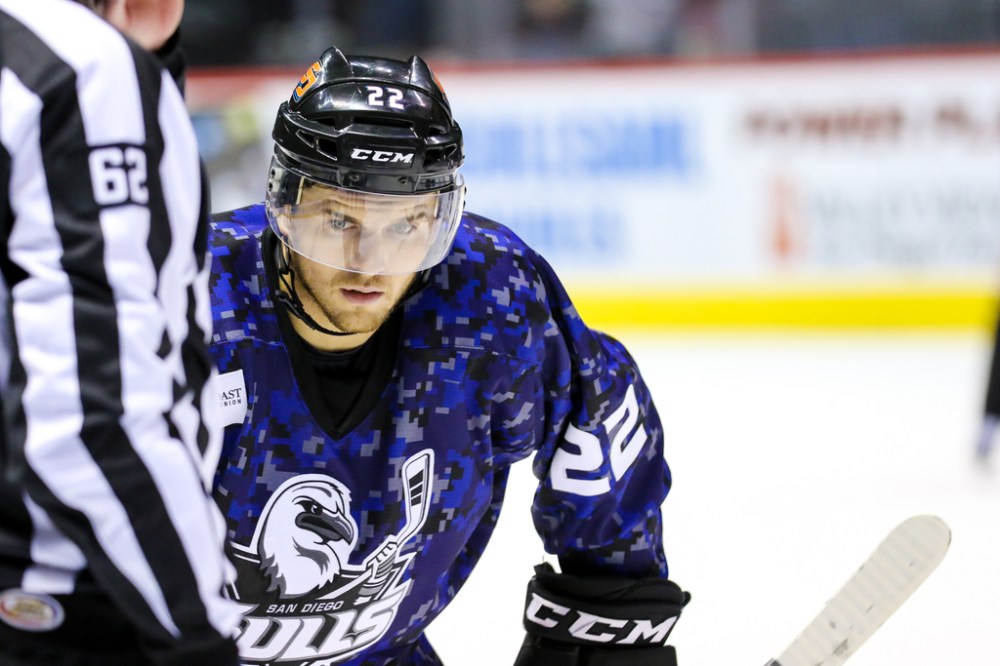
Unlike many of his NHL and AHL friends, Bailey knows there’s no competition again until next fall, but he feels for those currently twisting in the wind.
"They need to prepare as if they’re coming back to play. Like anything in life, when you have uncertainty, you kind of just look to control the things you have control over. They’re all professionals and they really care about being at their best. I know their mindset would be, OK, I’m preparing to come back at any time’s notice," said Bailey, whose hockey resumé includes the MJHL, USHL, University of Alaska-Anchorage, four years in the AHL, two years in Sweden and the past year in Germany.
Burr said some creativity is required, given the current situation. Chopping wood at the cottage, cross-country skiing, bike rides and runs are among his suggestions to clients, which include current NHLers such as Cody Eakin, Mark Stone and Brendan Leipsic.
"My belief, now more than ever, is to do something physical every day. It’s our best coping strategy for stress. Regardless if you’re a hockey player or not," he said. "A lot of these (regular) things are great to do if you have a training partner, but in this environment that’s not really doable. I guess as long as you’re practising that social distancing, these things would be absolutely no problem."
“My belief, now more than ever, is to do something physical every day. It’s our best coping strategy for stress. Regardless if you’re a hockey player or not.”
– Richard Burr
Bailey, who is scheduled to run a week-long skating camp for local teen players in July at Seven Oaks Arena in Winnipeg, believes staying mentally sharp in these uncertain times is just as important as keeping in prime physical condition. And that’s especially true for those waiting for word on whether the puck is going to drop again anytime soon.
"When you’re in a situation like that, where you don’t know, it’s on your mind more. Whereas when you know what’s going on and you have that finality, you can kind of chart a path forward," he said.
mike.mcintyre@freepress.mb.ca
Twitter: @mikemcintyrewpg

Mike McIntyre grew up wanting to be a professional wrestler. But when that dream fizzled, he put all his brawn into becoming a professional writer.
Our newsroom depends on a growing audience of readers to power our journalism. If you are not a paid reader, please consider becoming a subscriber.
Our newsroom depends on its audience of readers to power our journalism. Thank you for your support.

